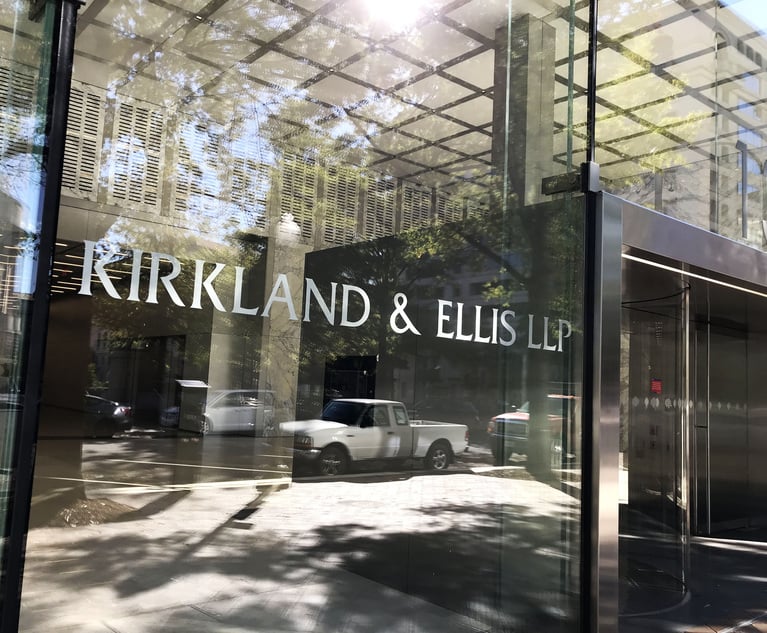For weeks now law firms have been switching to varying degrees of remote work schedules ranging from voluntary regimes to mandatory work from home policies.
What nearly all of these firms share regardless of policy is the skeleton crew, a bare-bones team of staff that handles the things that can’t be done remotely: mail, checks and deliveries for example.
But a few state governments, including New York, California and Pennsylvania, have handed down blanket rules ordering all “non-essential,” or in Pennsylvania non-life-sustaining, business to shutter and leaving firms wondering about how that affects their skeleton staffs.
On Thursday, Pennsylvania Gov. Tom Wolf mandated that all law firms and other legal services close their physical offices. A clarification Friday by the Administrative Office of Pennsylvania Courts, which the state Office of General Counsel approved, allows exemptions for attorneys, staff and clients performing “essential” functions, following the definition of essential given by the state Supreme Court earlier this week.
The court ruled that essential functions include emergency bail review, bench warrant hearings, juvenile delinquency detention, juvenile shelter hearings, protection from abuse hearings, emergency guardian petitions and civil mental health reviews. President judges in each local jurisdiction also have discretion to decide whether other proceedings are essential.
While Wolf gave no specific time frame with his order Thursday night, Matthew Haverstick, managing partner of Philadelphia’s Kleinbard, said he expects it will be about a month of operating—or at least attempting to operate—without physical office space. Though, after receiving the AOPC guidance Friday, he believes his firm will be able to allow a small number of staff to access the office so lawyers can keep to their ethical and professional obligations.
Pennsylvania will begin enforcing the rule Saturday, according to Wolf.
“We have one person (our office administrator) going to the office to open mail. It’s an interim step but it’ll get unworkable soon. Our first challenge will be billing. We’re contacting major clients to arrange electronic billing,” Haverstick said Friday, before the AOPC released its guidance. He added that the firm’s lawyers are still busy with work.
Mark Silow, chairman of Fox Rothschild, said his firm has been 100% remote since Tuesday. But the latest orders in Pennsylvania and New York may still change things.
With most of its lawyers and employees working remotely, the firm has, like many others, had a small group of staff attending to the tasks that are needed to continue firm operations, but can’t be done remotely.
In Pennsylvania, he said, law firms still need more guidance as to what ”this blunt instrument of an order” means for those functions. The AOPC guidance, he said, may not apply to his firm and they’re operating as though the skeleton crew is prohibited. For instance, in the affected jurisdictions, one employee picks up all mail from the local post office and takes it home to scan and send digitally to the intended recipient.
Silow said other kinds of businesses labeled as non-life-sustaining will face serious consequences as well if they cannot have someone stop in to check on the physical place of business.
“Coolers, water flow, electricity, computer systems … things like that have to be attended to. Otherwise there’s real risk of physical damage,” Silow said.
On Friday, New York Gov. Andrew Cuomo ordered all nonessential businesses to close and law firms were not on the list of exemptions, raising questions as to whether New York firms can still deploy skeleton crews.
And on Thursday, California Gov. Gavin Newsom also handed down a shelter-in-place order, taking the extraordinary step of ordering all Californians to stay home. Unlike Pennsylvania, though, the California order allows for professional service firms to maintain minimum basic operations, allowing the skeleton crews to stay in place for now.
Some firms—such as San Francisco-based Keker, Van Nest & Peters—have already cut down to just one or two people popping in and out to check on in-house servers and collect mail for scanning.
But given the fast clip at which laws and rules are changing, many firms are prepping for the event that they would have to close their offices as well.
“We do have some IT people in there, some limited amount of people dealing with our mail and copying but we’re operating on the assumption that at any point in time that will be closed as well,” said Brian Donnelly, managing partner of California firm Farella Braun + Martel.
But even within states, closure orders can vary area by area. In Florida, only Broward, Palm Beach and Miami-Dade counties have also issued blanket daytime closure rules—and basic law firm operations are exempt.
In Illinois on Friday, Gov. J.B. Pritzker issued a shelter-in-place order for the entire state starting Saturday and running until April 7. The governor’s executive order designates “legal services” as an essential business. But before that, some municipalities had instituted their own rules.
The city of Oak Park, Illinois, put into effect its own shelter-in-place law Wednesday with a carveout for legal services supporting essential businesses.
Shanita Straw, the founder of Golden Law, a small general-practice firm based in Oak Park, has shut down her office and transitioned to working remotely. To address their mail issues, Straw has put holds on firm mail and personally collected it herself, and she has been unable to deliver documents for signature to her clients.
“Of course being required to close for any reason means that there is a loss in potential business,” Straw said. “But what can you do?”
David Thomas contributed to this report.
Read More
As Cuomo Imposes ’100% Workforce Reduction,’ Law Firms Await Specific Details
New State Order Means All Law Firm Offices Must Close
Big Law Goes Remote: Updates on Law Firm Closures During the Coronavirus Crisis
Pa. Office of Counsel OK’s AOPC Guidance Saying Law Offices May Stay Open on Restricted Basis
NOT FOR REPRINT
© 2024 ALM Global, LLC, All Rights Reserved. Request academic re-use from www.copyright.com. All other uses, submit a request to [email protected]. For more information visit Asset & Logo Licensing.


 Photo: Anki Hoglund/Shutterstock
Photo: Anki Hoglund/Shutterstock









